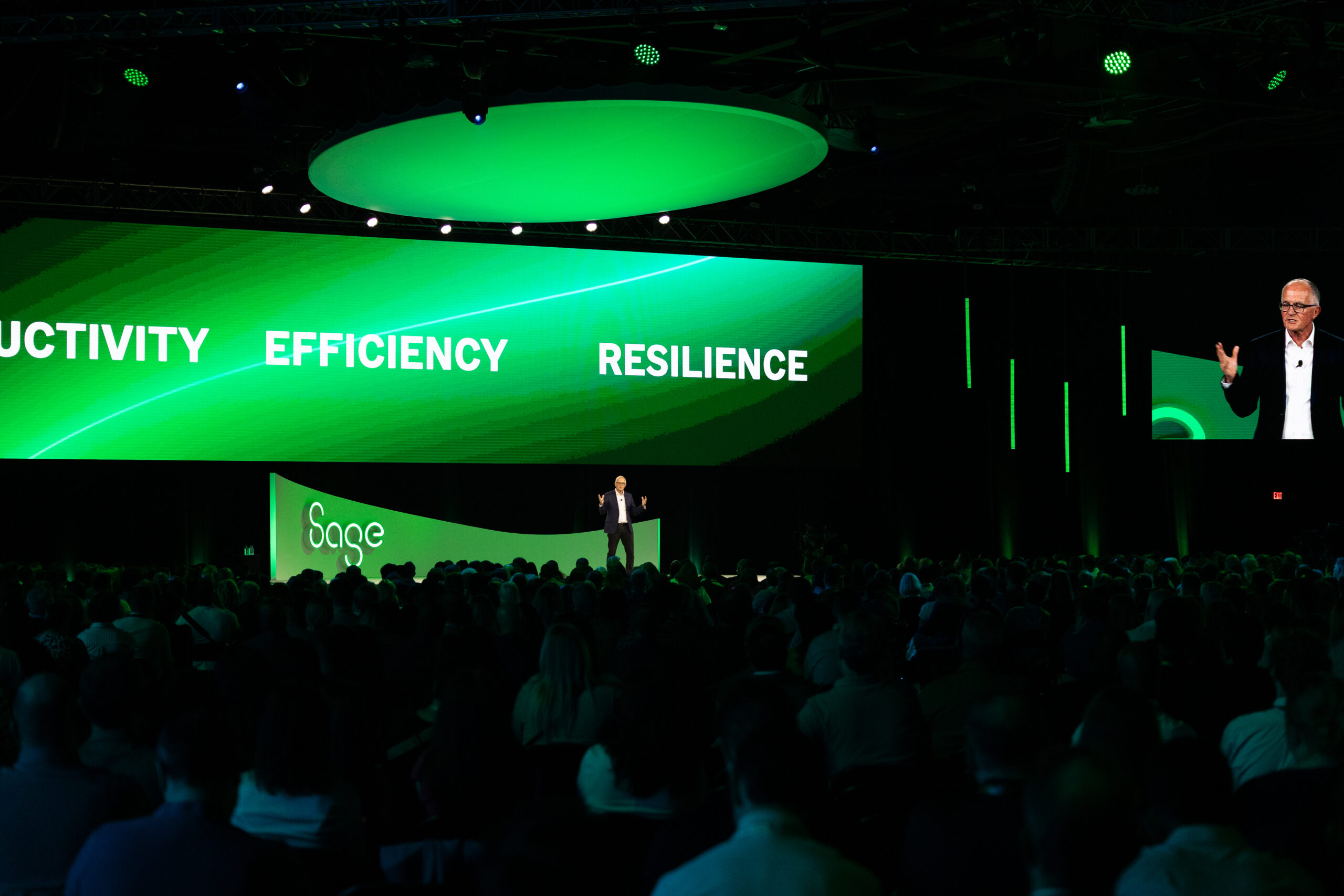The modern Chief Financial Officer’s (CFO) role is undergoing a momentous transformation from being focused on financial stewardship to being integral in shaping business strategy and leading organizational change. Now, new research from Sage indicates that 90% of CFOs have reported a significant expansion in their roles, with many aiming for CEO positions.
In response to these developing market demands, Sage unveiled its High-Performance Finance Software mission on Day 1 of the Sage Future conference in Atlanta. This initiative is designed to equip CFOs with the necessary resources to navigate their expanded roles effectively.
Sage’s High-Performance Finance Strategy
Citing these figures during his keynote at the opening session of Sage Future, CEO Steve Hare said that CFOs today have three big things on their mind: constant change, their ever-evolving role, and the need for high performance.”
However, Hare added that CFOs today are finding it harder to get the right people, enough time, or new technologies and investments to help them achieve these goals, even though 95% of them believe that they can have more impact on business.
“As finance leaders the expectation on you to navigate that change is on you,” Hare advised. “You want to spend 80% of your time looking forward. The windshield should always be bigger than the rearview mirror.”
Thus, according to Hare, being high performance is about who you are and the tools you use. “We are entering a new era of an agentic office of the CFO,” he said.
Sage’s strategy to achieve its High-Performance Finance Software misson is built on three core components:
- AI-Powered Solutions: The introduction of Sage Copilot, an embedded generative AI assistant trained in accounting, aims to enhance decision-making speed and accuracy, allowing CFOs to dedicate more time to strategic leadership.
- Executive Upskilling: Through a partnership with GrowCFO, Sage has launched the “High-Performance Academy.” This CPE accredited training program is designed to develop the strategic tools and competencies for finance leaders operating in high-growth environments.
- Peer Collaboration: The initiative also emphasizes creating a network for finance leaders to exchange insights and best practices, fostering a community of shared learning.
Mark Hickman, Managing Director North America at Sage, stated, “Today’s CFOs aren’t just financial managers; they’re catalysts of growth for businesses.” He highlighted that the initiative aims to provide advanced technology, executive-level training, and dynamic peer network that will empower them to lead boldly from the front.
Kathleen Ruiz, CFO at LA Opera House described the practical impact of such integrated solutions: “Sage has transformed the way the finance department runs, but the impact has been huge across the organization. We now spend a lot less time doing the things none of us like to do and stepping back and looking at the data and drawing some insights. This is what high-performance looks like to me.” This highlights how technology can enable finance teams to contribute more strategically.
What This Means for ERP Insiders
While Sage’s announcements are specific to its offerings, the underlying trends have broad relevance for the ERP market. The core message is that modern finance leaders require ERP platforms that offer more than record-keeping.
Emphasis on user enablement and development has increased. Research shows that while 82% of CFOs are directly responsible for driving profitable growth and 77% are involved in shaping enterprise strategy, less than one-third (31%) currently lead their organization’s digital transformation efforts. Advanced technology must be complemented by comprehensive training, effective change management, and a focus on developing the strategic skills of finance users. Thus, ERP implementations should aim to foster a high-performance finance culture, extending beyond the software itself.
Evolve beyond automation to strategic augmentation. Data suggests 72% of CFOs prioritize career progression over remuneration, and 85% state they require improved tools to meet escalating expectations. Given these figures, ERP systems must shift from automating routine financial tasks to augmenting the strategic capabilities of finance leaders. This includes providing robust predictive analytics and scenario-modeling tools to support forward-looking decision-making, a key consideration for ERP solution architects and consultants.
The integration of AI is becoming standard now. Embedded Artificial Intelligence and Machine Learning are now expected within ERP platforms. ERP professionals, both in mid-size and large enterprises must understand how AI functionalities can deliver concrete benefits in areas like financial forecasting, risk management, and strategic planning.




